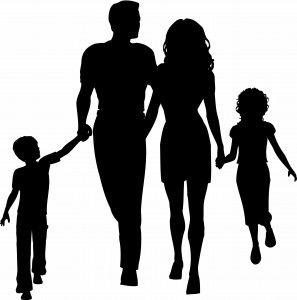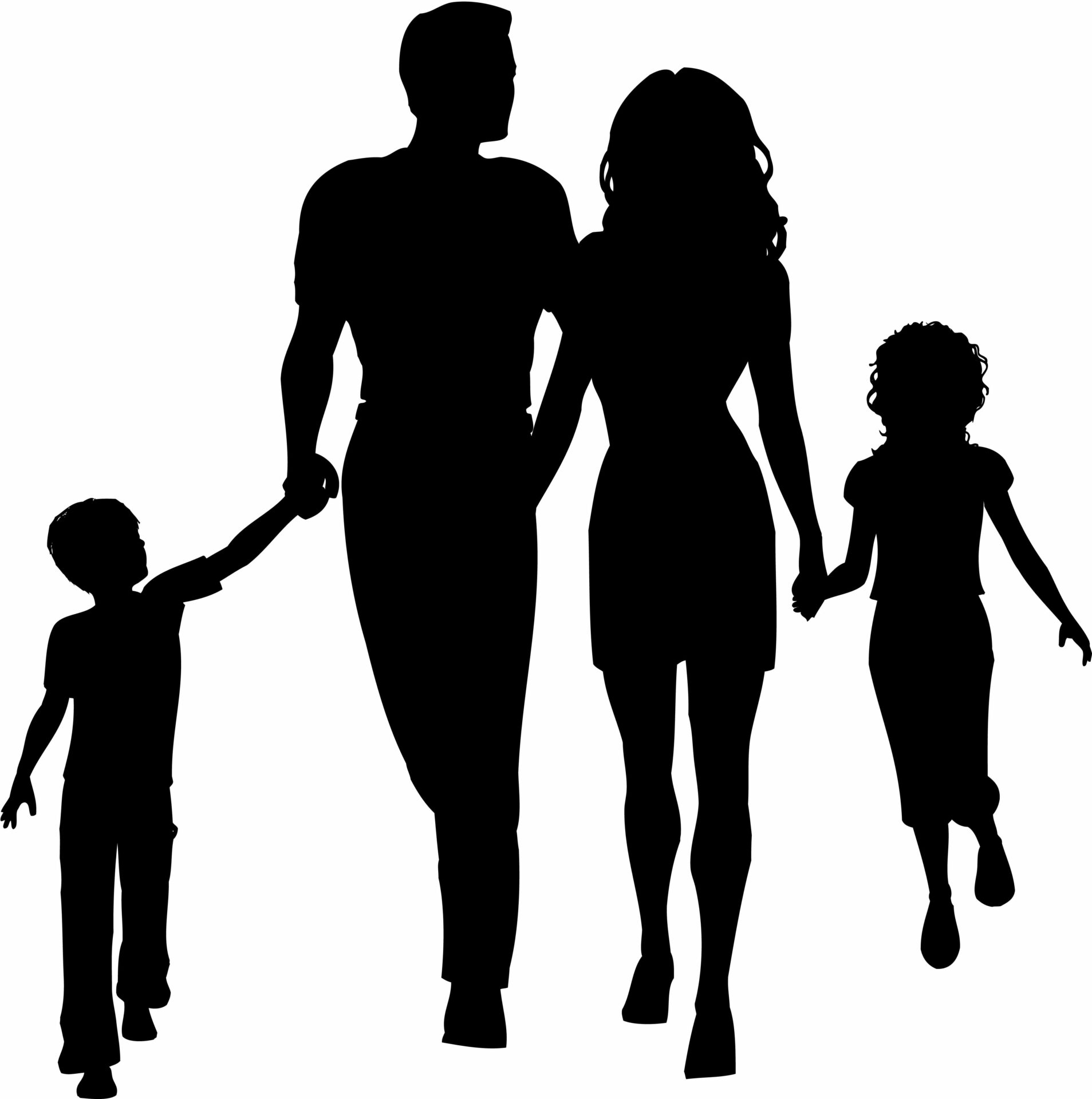 Claremont, CA. ABC’s hit series “Modern Family” has returned to the air for its second season.
Claremont, CA. ABC’s hit series “Modern Family” has returned to the air for its second season.
It’s the “modern” elements of the “Modern Family” that you’re supposed to notice right away. The family patriarch, Jay, has divorced his children’s mother and is married to a much younger Colombian woman named Gloria. Gloria has her own son from a previous marriage, Manny. Jay’s own children – Claire and Mitchell – are grown and have households of their own. Claire is married with three children. Mitchell, who is gay, lives with his partner Cameron and their adopted Vietnamese daughter, Lily.
So we have divorce and remarriage, homosexuality and homosexual parents, international adoption, and multiculturalism. We’ve got, in other words, what we like to call diversity. And all this modern diversity provides much of the show’s comic traction, whether it’s Mitchell and Cameron trying not to act “too gay” at their daughter’s toddler class or Jay’s evident discomfort when Manny wants to wear his Colombian poncho on the first day of school.
And yet I’m struck, over and over again, by how unmodern – or at least how atypical, by contemporary American standards – this family is.
To begin with, the entire family lives in the same town. The three generations spend lots of time together, at barbeques and birthday parties and children’s sporting events. There’s a lot of “day-to-day grandparenting,” precisely the kind of grandparenting that few American children ever experience.
Moreover, in each of the (very well-appointed) households there is at least one parent who stays home with the children. Jay is retired, and Gloria doesn’t work. Both Cameron and Claire gave up their jobs to raise kids full-time. This is in stark contrast to the contemporary reality, in which families with one “stay-at-home” parent are a distinct minority.
It’s worth emphasizing the numbers here: just two of the six adults on “Modern Family” have income-producing jobs. And Phil, who is a real-estate broker, must have some kind of preternatural skill at real-estate brokering because he spends almost all his time at home. Only Mitchell, a lawyer, has ever complained that he has to spend more time at work than he’d like – and even so, his job has not required him to move away from his hometown, spend lots of time on the road, or even commute a moderate distance.
By any metric, this family is almost completely insulated from the dominant realities of modern American life. They are all wealthy, living in big southern California houses (each of which would probably cost in the neighborhood of a million dollars, even in this post-bubble housing market), and yet they do not require dual incomes to sustain the luxuries of their existence. No one seems worried about the economy; no one has to put their children in day care; and no one finds it all that hard to spend time and cultivate relationships with their extended family.
It’s more of a modern fantasy than a modern family, the “Leave It To Beaver” of our age.
Clearly, the conceit of the show is that family remains family, and family is about love, no matter how many ethnicities and sexual identities it involves. In the most basic ways, “Modern Family” is a classic, feel-good sitcom. Many if not most of the episodes begin with some sort of comic tension and end with the family members coming together, hugging, and professing their love for each other.
I enjoy “Modern Family” a great deal. And yet I can’t help thinking, every time I watch the show, how nice it would be if the only things that made for a modern family – and the only things that troubled modern American families – were the kinds of features that define this family. But the sad truth is that this is a family that is wholly unrepresentative of contemporary American life.
Even if we regard the family on “Modern Family” merely as an ideal, we have to recognize that it is an ideal that is becoming out-of-reach for more of us all the time. Today, in fact, a report released by the Census bureau found that the gap between the rich and poor in the United States is now the widest on record, and the ranks of poor and squeezed middle-class American families are growing. About 43.6 million Americans are now living in poverty, the most in the 51 years since the Census estimates of poverty began. One of the great effects of this increase in inequality and poverty, the report suggests, is that more Americans are delaying marriages and putting off having children.
In other words, as we’re watching the “Modern Family,” in its life of diverse luxury and abundance, the truth is that for more and more Americans, the very possibility of starting a family – any family at all – seems itself to be a luxury.
We’ve gotten pretty good in this society at talking about things like multiculturalism and sexual orientation, and how those factors of “diversity” both complicate and enrich our common lives, even if we often don’t agree about the way those kinds of diversity should be dealt with in terms of policy. That kind of diversity talk is what sustains the drama and humor of “Modern Family.”
But as Walter Benn Michaels pointed out a few years ago in his terrific book The Trouble With Diversity, Americans have learned to love talking about identity at the cost of talking about inequality. Talking about diversity as if it were the measure of our “modern-ness,” or as the most important measure of social change in the polity, allows us to ignore the more dubious state of equality in America. And that ignoring, among other things, makes it more difficult for us to talk about the truly perilous state of family in America.
I’m sure many people watch “Modern Family” as a weekly 24-minute escape from their own, very real problems. There’s something to be said for at least a little escapism. But if, as citizens, we really value the idea of vibrant modern families, we have to understand how hard it is to sustain – or even create – a modern family in the first place. We have to be willing to talk about the many ways in which current legislation and policy, not to mention current economic ideology, make it harder and harder for families in this country to thrive, or even to begin as families in the first place. If we want to have something approaching the abundance of the “Modern Family” in our own lives, we have to discuss something other than what that show suggests modern family is all about.







27 comments
Ben
Let’s set things straight here. They live in west LA. Jay is a wealthy businessman, Mitch is a lawyer and Phil is a realtor selling multi million dollar homes. What the hell kinda lifestyle do you expect these people to live?! It’s very realistic!!!
Scott
I haven’t seen the show, but it sounds sickening from your description of it. It sounds like it must be exactly what it is: family life from the perspective of rich, liberal, southern Californians. Does the show say why Jay divorced his wife and married a much younger Colombian woman? Does it at all condemn him for motives that seem, on the face of it, suspect? Or does it praise him for adhering to the nauseating “you must follow your bliss” so prevalent on TV? Plus, I’m sure the two gay characters are as white bread as can be, with the occasional “sassy” comment thrown in. Is the Columbian boy constantly faced with clueless white people who are oh so culturally insensitive and uncomfortable around him? But again, I haven’t seen it, so who knows
In Jay’s defense, his wife left him, he didn’t leave her…
Anna
.. allow me to add the addendum…
Note that none of the women (at least for the first few episodes) seem career-oriented, and none have real hobbies that extend beyond baking, makeup and dresses.. Gloria even tries to get Claire’s middle child (why are the children more intelligent than the adults?) to wear a dress, but the girl–rightfully–refuses. Reminds me of me when I was little.
Anna
I don’t think this show presents a very modern view of anything. As an educated woman, it just makes me feel bad that I don’t get turned on by prancing around in the kitchen all day and nagging a doofus husband who doesn’t know his left shoe from his right about how to be a ‘man’ (let’s not get into the male stereotypes, either).
The only modern couple here is the gay couple since–I guess because they’re both men–there really is no distinction between what roles they play (i.e. they both take care of baby Lily and share in the housework, even though one works).
Another couple I quite enjoy is the hot latina and the sugardaddy, and that’s not just because she’s an intelligent character whos son shows himself wise beyond his years, but because there is more depth to them than Claire and Phil. For one, their relationship–unlike Claire’s and Phil’s–is actually GOOD. Another: Gloria is a fully-developed character and so is her husband.
I’m sick of Claire’s nagging and Phil’s idiocy. It baffles me why she married the doofus in the first place. Money? Isn’t he a real estate ‘mogul’? Furthermore, why is Claire so DAMNED unhappy!? She doesn’t work, her kids are relatively grown up so that she doesn’t have to watch them at all times, and she’s got a California mansion complete with swimming pool.. all the stupid, nagging (pardon the expression) bitch does is try to control everything that happens around her. If I was her, I’d be sipping Margaritas all day in the pool! (oh, and making dinner, of course, in the spotless kitchen)
Corey
It occurred to me, reading this (though I disagree with its major ideas), that inequalities are what even makes the relationship between the gay couple and their adoptee possible. Without a poor mother who could not take care of her child, there would have been no child for the couple to adopt. Similarly, because technology and law have both separated all sex from procreation and created a pathway for those whose sex can never be aimed at procreation, the gay couple could “have” a child. The only thing required of them is that they could provide the child with a nice house in the SoCal ‘burbs. And that they love eachother, of course.
What bugs me about this show, however, is not whatever missing pieces of modernity there might be. Instead, it’s the fact that shows like this uncritically present a modernity that we’re stuck with. It’s just a fact of life that we’ve got mixed families, families with no deep roots in their place, families that include people whose orientation (or whatever you want to call it) makes it impossible for them to have children of their own. And what of it? All of these things are smoothed over by a little dramatic familial love, which, after all, conquers all of these humorous (and MODERN!) difference we have.
JimWilton
Good luck, Brandon. I had a kid my first year in law school — and he is 22 now (think of that!). Advice is cheap — but I’d suggest not trying to have everything planned. Life disrupts all plans anyway — so if you make decisions with a good heart and putting others (especially your wife) first that is the best approach.
Oh, per Tony’s comment, when you get to law school don’t necessarily believe the law professors when they talk about life and law practice. Professors in law school tend to be lawyers who went into academia when they found they diidn’t like practice. I still remember as a young associate walking back from court with a partner and memtor — when he turned to me with a grin on his face and said: “A day in court is a good day!”
Tony
Brandon – good luck with the law gig. My two pesetas worth – make sure you don’t let the pressures of law school & practicing law interfere with your relationship with your girlfriend (& hopefully wife & family, no?). Because, rest assured, the pressures will come. I had to sit through five minutes of an opening lecture on torts, where the professor asked who was married, and told us we would end up divorced because we would “learn to think like lawyers” while our poor spouses would remain intellectually stunted and no longer worthy of our precious company. Evil abounds.
But no worries – you can marry your girlfriend, have her put you through law school, establish your practice, and then ditch your wife & family and hook up with some hot Columbian & still have a “vibrant” family life, so long as you remember to stay funny, give lots of hugs, and don’t get your shorts in a diversity knot.
A couple of points about the essay (at the risk of posting on a thread that has petered out):
First, although I tried watching Modern Family a couple of times, I never made it through a full episode – not because it had gay or divorced characters, but because I found it rather flat – not sure whether it was the direction, the acting, the writing, the camera angles, my undeveloped sense of humor. My objection to this essay, though, isn’t that Modern Family isn’t funny, but that the essay seems to hold up these broken families as ideal, decries economic inequality and the impact such inequality has on being able to raise a stable family, and yet makes no mention of the connection between family dysfunction and the economics of raising a family. I bet that divorce and single parenthood have a greater, more immediate impact on lower and middle class financial stability than does a gap between the rich and the poor (which is not at all a defense of such inequality.) I would also bet that the ideas underlying the ‘modern’ outlook that tries to portray such broken families as normal, are the same ideas underlying our current economic inequality.
Second, David made an interesting point with respect to the effect on our brains when we watch other people. For example, I thought the scene in Fargo, where the guy is desperately trying to shove his murder victim’s leg in to the wood chipper as the police close in on him, was funny, as was the scene in Pulp Fiction, where Bruce Willis is trying to choose from a number of possible weapons, while the other character (I don’t remember the actor’s name) is still tied up and being raped in the basement. But, I’m not so naïve as to think that I can watch images of people being put through a wood chipper or raped, without those images having an effect on me. It’s an interesting question whether the same applies in instances, such as Modern Family, where the objectionable behavior is apparent intellectually but not visually. (I presume Modern Family has yet to include graphic scenes of Mitchell and Cameron in bed, and how much comedic interest is there is watching someone sign divorce papers?) Maybe it isn’t the same, and maybe the only appropriate criteria is whether it’s funny or not. But it’s still a question worth pondering.
Sarah
Sam M,
You remind me of our situation. When my husband and I married, we were scraping by, and now – three kids (and one on the way this month) later – we’re still scraping, but not really any more than we were when we started out. I’m a stay-at-home mom who homeschools our kids, and the house is getting smaller, but we’re doing okay. My husband is grateful for his job, which doesn’t pay as much as the job he had when we married (long story), but we’ve never looked at any of our kids and thought, “Gee, if we’d waited before we had that one, maybe we’d be in better shape financially.” If we’d waited until we were “ready,” we’d still be waiting.
The venison would be nice, though. For now, we’re adding to our list of recipes using ground beef and ground turkey.
Sam M
David,
My wife and I have number five on the way. To my college friends, we are like Ma and Pa Kettle. But we moved back to my rural hometown and it’s not that weird here. Ah, Catholicism. We are always broke and the house is too small. But… eh. We’re not THAT broke. Plus there’s always venison.
Plenty of dysfunction here, but the reproduction seems squared away!
Guglielmo
Holy smokes! Modern Family is a sitcom in a long line of family-based sitcoms: Ozzie and Harriet, Father Knows Best, Leave It to Beaver, Family Affair, I Love Lucy, Honeymooners, The Brady Bunch, the Partridge Family, All in the Family, Happy Days, The Cosby Show, Roseanne, The Simpsons, Married With Children, King of the Hill, Family Guy, Everybody Loves Raymond…now Modern Family (about as “typical” as most of its predecessors). And it’s pretty darn funny if you can sit down in front of the screen without your shorts getting into a diversity knot.
David
Life is full of such blessed disasters! May God visit many such disasters on all in Christendom (lest we disappear entirely from the earth, for no other reason than our reproductive dysfunction).
Sam M
My wife and I had several kids when I was in grad school. It’s entirely possible. It’s a terrible disaster half the time, but such is life.
Should you ever get a job in a law firm, your job as an associate will require far mre hours per week than law school did. Later, once you make partner, even more hours will be required. Worst of all will be putting out a shingle and being an independent pawyer, in which case you will ALWAYS be working.
If you look at the numbers, an astonishing number of people in America raise families on salaries that are quite a bit below the median income. Now, you might choose to delay for any number of reasons, and you should always follow your own heart in this regard, but keep this in mind: When you start having kids, you are going to be basically homebound anyway. Might as well go through all that when you’re broke and homebound anyway.
Brandon
Empedocles,
No, we do not have the financial ability to support a child as we are not completely financially independent ourselves. Our “knowledge economy” requires a person to have a massive amount of education (or be quantitatively skilled, which I am not) just to make decent self sustaining income. So I have two more years of my bachelor’s degree left before I hope to go to law school. If all goes well, I should be a lawyer by 28 or so.
Plus, we both live in a big city which is no place to raise children these days.
D.W. Sabin
I don’t know, but the one time I watched this show and came across Gloria, I began to see my attention to plot waver . Not because there aint much plot beyond Political Correctness with a giggle but because Gloria, well, aye caramba but I was put in mind of a former interlude when I enjoyed the entreaty of “Beeg Meester Wheeskers” calling out to me over some ceviche, spicy as it were, like all good things latin.
Worrying about Television is like wasting time considering whether or not to buy Michelins for the Yugo.
Perhaps at this point, worrying about the trajectory of this besotted culture is like buying the Yugo in the first place.
David
Sam M,
Just to answer your question, I generally only like satire. The most offensive thing I enjoy is probably the better episodes of the better seasons of “The Simpsons.” (aka not the buffoonery)
I’m not defending my taste. I couldn’t. I have watched far more TV of far less quality (I am sure) than anyone else in this discussion. Perhaps it is just such expertise that has turned me into a picky consumer of the product in recent years.
As the holiday season approaches I recommend Bill Murry in “Scrooged”. I find many personal parallels (yes, I watched so much TV that as a child I could mistake a TV episode for a memory).
Renunciation doesn’t happen all at once (regardless of what the Baptists tell you). I have been weening myself off of the stuff (my various addictions to entertainment, food, etc) for years now. I claim no particular piety. In fact, my advice for shunning the stuff comes not from righteousness, but from just how much I know wallowing in it can rot your life.
I continue to serve the FPR community as the visual aid “before” picture.
Empedocles
Just out of curiosity, why can’t you start a family if you both really want to? Do you not have the financial ability to support a child? Otherwise I’d say don’t stop yourself from doing something you both really want and is the most wonderful thing this life allows (as long the parents are mature enough to dedicate themselves to it).
Brandon
I don’t see how divorce and remarriage could ever be seen as the ideal for any family, modern or not.
I agree with this article on the economic situation. I’m 22 years old and am looking at (if I’m lucky) being able to start a family when I’m 30. My girlfriend is 22 and came to me the other day, somewhat depressed and said “all I’ve ever wanted is to have a family and live a simple, happy life and now it feels like I’ll never have that”.
I can’t say I could do or say much to reassure her.
Sam M
“If we’re all just friendly and accept one another life would be great!”
But nobody is saying everything would be great. As discussed, the characters are presented as hopeless goofs. Yes, their houses are nice, but I don’t think anyone is supposed to want to be them.
“No fall-out from the broken home. No sexually transmitted disease. No vision of the slave labor required to furnish their luxurious lifestyle.”
Well, OK. But can you then mention some comedies you admire? I am sure that we could interrogate the era from which they arise and see if they grapple with the major problems of the era and ultimately fess up to them. As mentioned, I don’t recall Ward Cleaver hurling racial insults at the TV. I don’r recall episodes where June is sitting around the house complaining to other women in the neighborhood about how ridiculous it is that she has to have her hair done perfectly when Ward comes home, or how she might have preferred to have been a doctor. Sure, we got a lot of stuff about virtue, but none of that other stuff.
I am not sure what to make of this wider discussion. Should art (or entertainment, however defined) go about demonizing any and all folks who get divorced? Should gay couples be presented as seething pedophiles wracked with syphillis? Maybe any character in any show who drives an SUV should be hit by a comet by the end of the episode? I guess that might serve someone’s larger goals, and conceivably could convince some people to live closer to home and buy more food from the farmers market, but I somehow think not.
OK. So shows should try to promote virtue. This one says that if your brother is gay and adopts a kid, you should be civil to all involved, even if it makes you really uncomfortable. I guess there is a line of thought that says this is not the virtuous path, and that true virtue requires being mean to them or cutting them out of your life. But that sounds more like an Ayn Rand / Hank Rearden virtue than anything I’d like to pursue.
David
I really would like to like Glee, but alas, no.
One could argue that my tendency to watch too many Discovery channel programs arises from a sort of voyeurism. I’m not anti-TV or entertainment, just trying to get people to stop watching House (no matter how good an actor Hugh Laurie is).
We’re all hopefully headed up the Ladder of Divine Ascent. Not proposing we all be on the same rung.
Russell Arben Fox
Tony,
Moreover, this essay misses the underlying connection between the two–one reason why we have such a dysfunctional economic policy is precisely because we have bought into the lie that human nature–whether as an individual or in a family–is whatever we say it is.
Of course, that works in the other direction as well: one of the reasons people feel comfortable saying and believing that human nature is whatever we say it is, is because for 300 years (or more?), the Western world (or progressively larger and larger portions of it) has been operating under the dysfunctional idea that economics begins and ends with the free transactions of individuals, full stop.
David,
Honestly folks, this stuff is such drivel. Don’t you all have something better to spend 30 mins a week on?
Indubitably. However, we all have our meaningless geeky drivels which, for better or worse (or both), our bloated capitalist economy makes available to us as indulgences at the end of the day. For my wife, for some bizarre reason, it’s Glee and Castle. For me, I kind of like 30 Rock. Your mileage may vary.
David
Sam M y Russell AF,
I can’t say I agree that such is a decent defense. Hypocrisy is too critical an element in culture to be dismissed so easily. There was a recent study about how our brains work when we watch other people. In a very real sense we simulate the experiences they have when we observe them.
All this simulation of “remedial” virtue is damaging and has effects long outlasting the vacuous interval of the show itself. Entertainment should be promoting virtue, even if those who author, produce and affect are known not to have perfected virtue in themselves.
I think there is still plenty of room for “realism” or “humor”, both of which are still possible while maintaining the virtue’s promotion.
Oddly enough that is partly what the show’s creators are also thinking. They are modeling what they consider the form of “modern virtue”: likable, well-meaning but incompetent addicts. If we’re all just friendly and accept one another life would be great!
No fall-out from the broken home. No sexually transmitted disease. No vision of the slave labor required to furnish their luxurious lifestyle. No closed coal-power plants. Not even an accidental death from the neighbor who’s self-important lifestyle involves driving their planet-destroying tank-of-a-car too fast in parking lots full of children while being distracted on their cell-phone talking to their pet’s manicurist.
Honestly folks, this stuff is such drivel. Don’t you all have something better to spend 30 mins a week on?
Tony
The conceit of the show is that family is whatever “we” say it is. The facile claim that “family is about love,” is (in addition to being hypocritical – as Empedocles suggests, if “family is about love,” why did Jay and Gloria get divorced?) used as an argument-stopper, meant to foreclose any attempt to assert “family” has any essential meaning beyond how we choose to define it. After all, who can argue against love, right? (“Are you saying Mitchell doesn’t love Cameron?” “Are you saying Claire and Mitchell shouldn’t love Gloria?” “Shouldn’t every family resolve its comic tension by coming together and hugging and professing their love?” etc. etc.)
The show is a fantasy both because it is not realistic in their depiction of America’s dysfunctional economic policy and because it has no understanding of what a vibrant family is. Moreover, this essay misses the underlying connection between the two – one reason why we have such a dysfunctional economic policy is precisely because we have bought into the lie that human nature – whether as an individual or in a family – is whatever we say it is.
Russell Arben Fox
So yes. The characters are self indulgent, self destructive and self satisfied. And no, this doesn’t bother me. If anything, it makes such shows BETTER than Leave it to Beaver. At least the characters share the flaws afflicting the wider culture. (Are there any episodes of Beaver in which Ward and June hurl racial epithets at the television?) As such, the satire seems like its aimed squarely at me and my faults, and is not meant as a celebration of same. This seems like a good thing, not a bad thing.
A decent defense of the show, Sam. As I said above, I only watched it once; maybe I should give it another try. I think Susan’s overall argument, however, undermines part of your defense–it is exactly that the characters don’t “share the flaws afflicting the wider culture” which should give us pause. Of course, the flaws that Susan was speaking of aren’t recognized as flaws by those of the television-program-producing set: mobility, separation, family dysfunction, etc. And even with all that, I doubt that I could prevent the comfortable cosmopolitanism of the show from infuriating my Inner Moralist/Marxist. Still, I’ll take your words–and Susan’s–under advisement.
Sam M
I’ve seen the show, and I think it’s pretty funny. In general, it presents people as deeply flawed buffoons, which is a pretty accurate represenation of reality for most people. At least it is for me. It pokes fun at rampant consumerism as often as it celebrates it. The episode I saw featured a young wife trying but failing to get her husband a fantastic birthday gift. And it was funny.
Ultimately, these buffons are better looking than most people and live in nicer houses, but such is television. (Again, Leave it to Beaver.) And ultimately, they are presented as pretty likable, affable people depite their flaws. I think this is also accurate. Generally, even if you go to a neighborhood that features architecture and highway policies that you HATE, most people are plenty friendly enough to share a beer with. I mean, I have even had beers with people who drive Lincoln Navigators!
So yes. The characters are self indulgent, self destructive and self satisfied. And no, this doesn’t bother me. If anything, it makes such shows BETTER than Leave it to Beaver. At least the characters share the flaws afflicting the wider culture. (Are there any episodes of Beaver in which Ward and June hurl racial epithets at the television?) As such, the satire seems like its aimed squarely at me and my faults, and is not meant as a celebration of same. This seems like a good thing, not a bad thing.
David
So the ultimately self-destructive, self-satisfied, self-indulgence of the characters doesn’t bother you, just that they aren’t realistic in their depiction of America’s disfunctional economic policy?
Sometimes FPR weirds me out.
Empedocles
I haven’t seen the show, but it sounds sickening from your description of it. It sounds like it must be exactly what it is: family life from the perspective of rich, liberal, southern Californians. Does the show say why Jay divorced his wife and married a much younger Colombian woman? Does it at all condemn him for motives that seem, on the face of it, suspect? Or does it praise him for adhering to the nauseating “you must follow your bliss” so prevalent on TV? Plus, I’m sure the two gay characters are as white bread as can be, with the occasional “sassy” comment thrown in. Is the Columbian boy constantly faced with clueless white people who are oh so culturally insensitive and uncomfortable around him? But again, I haven’t seen it, so who knows.
Russell Arben Fox
I checked out an episode of “Modern Family” a while ago, Susan, and I have to tell you, I absolutely couldn’t stand it. It just annoyed the hell out of me…but I wasn’t sure why. Your essay here puts into focus for me, especially your reference to Michaels’s wonder book. Yes! The problem is “diversity”–that is, a diversity that exists as something “modern” and noteworthy for its sake, completely ignoring the wealth, the homogeneity, the security–and the inequality–which is presumed so as to better show off that modernity, but which actually renders such diversity a merely trite, boutique sort of display. It brought out my moralistic Marxist, in other words. Years ago, I wrote a short essay on Michaels’s book; my conclusions was:
This is one of the reasons you have figures like Christopher Lasch or other “left conservatives” arguing against liberals–because liberals don’t see the importance of community….Michaels expresses no sympathy whatsoever for community or identity or race, yet he is arguably picking up on a little bit of this left traditionalist frustration nonetheless. Modern globalism/capitalism/cosmopolitanism makes generating affective concern about stuff like race or culture, according to him, cheap. It’s easy to do; it’s just a commodity, and that means it plays into the hands of those who can profit from and sell such commodities.
“Modern Family” claims to be telling entertaining stories about the family today; what it’s really doing is safely shuttling away the economic and cultural realities that make modern multiculturalism so very much an elite, upper-class pre-occupation, something to show off to the neighbors. Actual families, which are regularly sundered and undermined by an economy which does little to act to preserve and sustain the wages and neighborhoods which families both depend upon and contribute to, are rarely “modern” or “diverse” in the way this television show apparently is: they can’t afford that kind of social luxury.
Comments are closed.